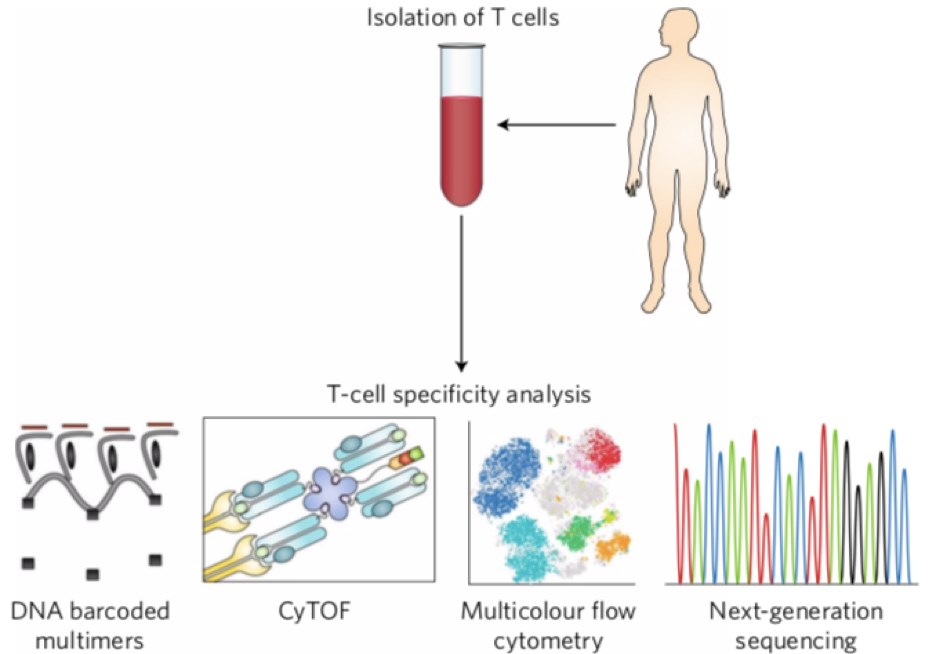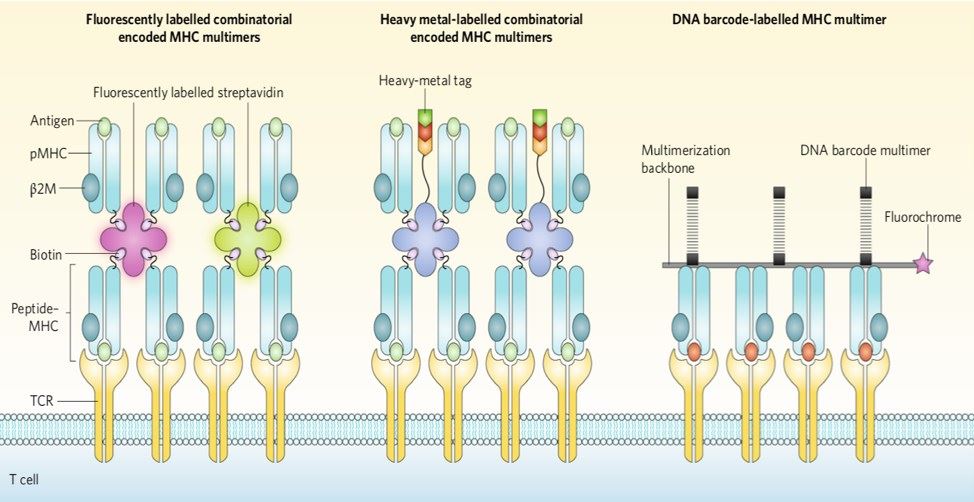GTOnco™ T Cell Specificity Assay
It is well known that the recognition of short peptide sequences presented on MHC class I by the T cell receptors (TCRs) of T lymphocytes is essential for the defenses against malignant cells and pathogens. In adoptive cell transfer (ACT) therapy, the functional activity of large populations of T cells can be redirected against defined targets by antigen-specific TCRs engineering. As a world-renowned service provider for immunotherapy, Creative Biolabs provides high-quality in vitro assays to test the specificity of engineered T cells for interested antigens. GTOnco™ platform also helps our clients design the appreciate project plan to support your gene therapy-based I-O strategies, including CAR-T therapy and TCR modified T cell development.
 Figure 1. T-cell specificity profiling. (Hadrup, 2017)
Figure 1. T-cell specificity profiling. (Hadrup, 2017)
Adaptive immune responses are based on the ability of T lymphocytes to respond to specific antigens. Therefore, understanding T cell recognition patterns and T cell specificity in health and disease plays a critical role in the therapeutic efficacy of gene therapy-based I-O drugs development. GTOnco™ platform has developed a variety of in vitro T cell specificity assays to analyze the T-cell epitopes and functions. Such as multi-color flow cytometry, next-generation sequencing and MHC multimer technology for probing antigen specificity is available at GTOnco™. There are three multiplex MHC multimer technologies have been applied in T cell specificity assays, namely heavy-metal-tagged combinatorial encoded MHC multimers, fluorescently labeled combinatorial encoded MHC multimers and DNA-barcode-labelled MHC multimers. These technologies are devised to amplify positive signals and to identify specific TCR specificities.
 Figure 2. MHC multimer technology for probing antigen specificity. (Hadrup, 2017)
Figure 2. MHC multimer technology for probing antigen specificity. (Hadrup, 2017)
With professional service and various technology platforms at Creative Biolabs, we provide customized and high-quality T cell specificity assays for our clients all over the world. Our service can be designed to meet your special needs if you have any requirements. If you are interested in our service to support the development of gene therapy-based I-O products, please contact us to learn more information.
Reference
- Hadrup, S. and Newell, E. (2017). Determining T-cell specificity to understand and treat disease. Nature Biomedical Engineering. 1(10), pp.784-795.
